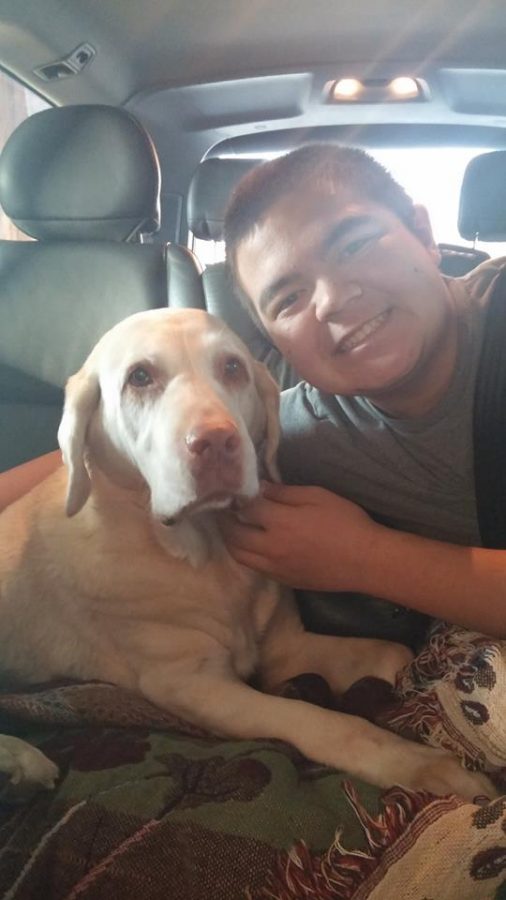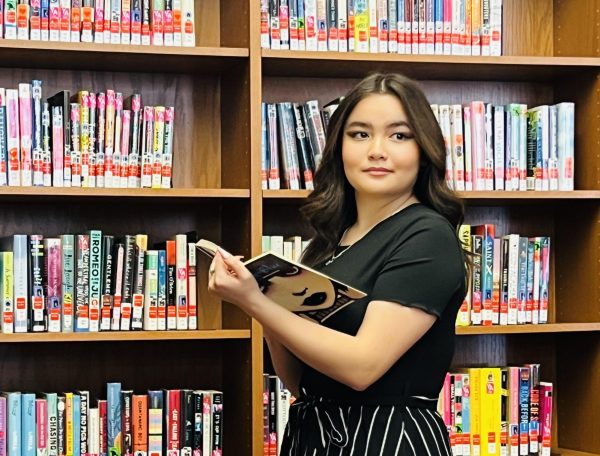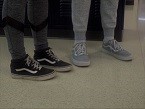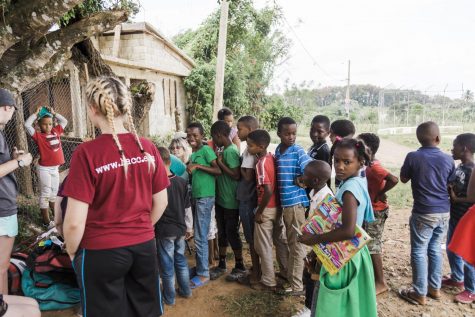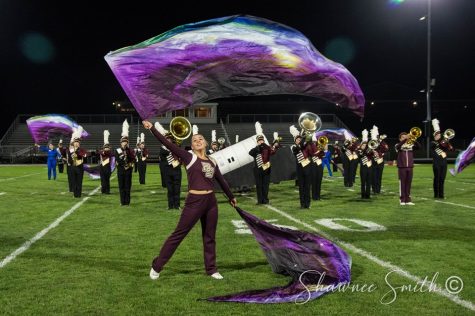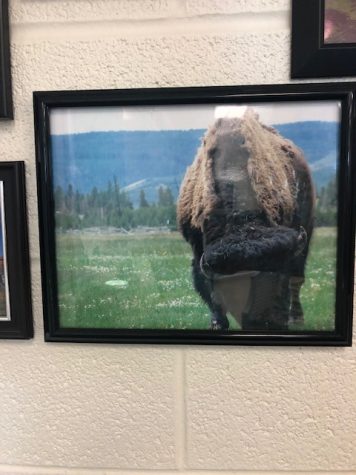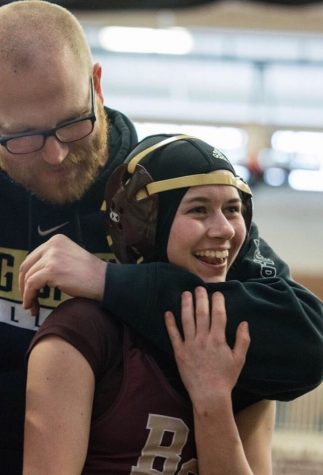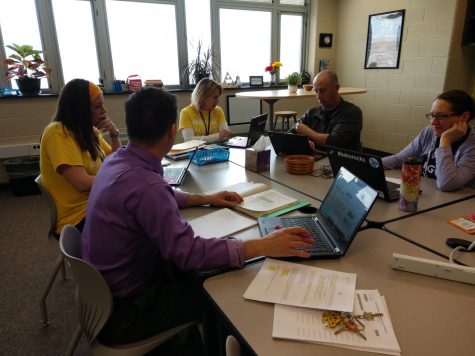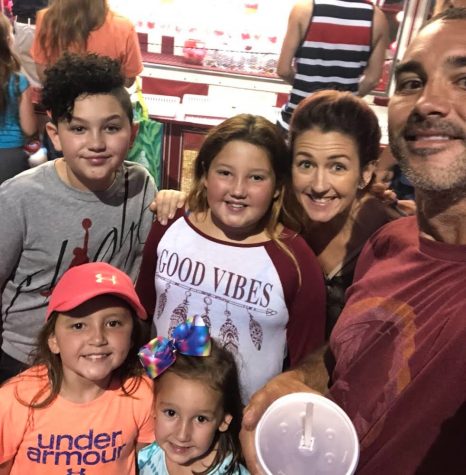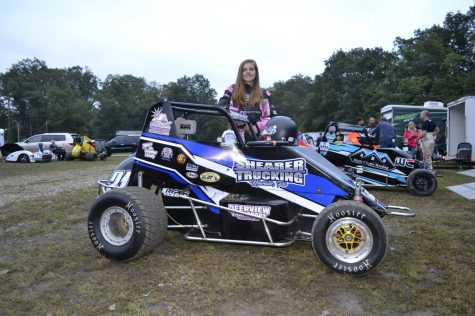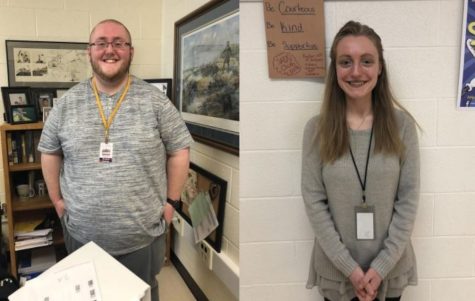Sophomore has big heart for animals
December 16, 2016
Many people have the misconception that those who hunt do not have a respect for animals, but sophomore Seth Franklin proves that theory wrong.
“I hunt to provide food for my family and control the population,” Franklin said. “If the population of an animal gets out of control, it could mess with the ecosystem.” Franklin has had a wide knowledge interest in animals since he was in kindergarten, reading books and watching documentaries about them.
“I think that animals are more interesting than people.” Franklin said. He went on to say that’s it’s hard for him to choose a favorite animal, because he likes them all; he thinks they’re all interesting in their own way. He likes primates because he feels that they are closely related to us. A primate is a mammal that have hands, hand like feet, and forward facing eyes. With the exception of humans, they are typically tree dwellers. Franklin also likes wolves and big cats. He said, “They are ferocious and get big in size, and they have cool hunting techniques.”
A hobby of Franklin’s would be tracking animals. His hobby started when he was younger, and his dad took him out hunting and showed him some animal tracks. “I got the tracking skills from my dad.” Franklin said. “Also, I watch shows when experts track animals.” He likes to find interesting signs, try to guess what happened and what the story behind the track is, and what the animal has been doing. Franklin’s favorite part about tracking animals are seeing the signs, and he said “If you get the chance, you can see the animal in it’s natural habitat and you might not have ever seen that animal before.” He recently used his public speaking class as a platform to teach his fellow classmates how to track animals as well.
There are many steps as to how to track an animal. The first step is gathering materials, such as food, water, binoculars, extra clothes, a magnifying glass, and a casting kit. “You never know what might be useful.” Franklin said. A casting kit helps to cast tracks never seen before. “You take plaster powder and mix it into water and pour it into the track, wait 30 minutes for it to dry, then take the casting out and wash it off. You’ll have a souvenir.” Franklin said. He also commented that casting a track was helpful to see the little details of the track and what animal it is.
Second, always be at the right location. There are a ton of places to look, but animals hang out in specific areas and habitats. Make sure to be there at the right time if you want to see something special, because possibilities like migration, courtship and battles only happen once a year. Third, look for signs. Animals give a lot of signs, but some are hard to find so always keep an eye out. Some signs are scratch marks, footprints, scent posts, and maybe some objects, for example, fur or a predator’s lunch. Next, always determine what kind of sign it is and how old the sign is. Animals give tons of signs every day, and if it’s a fresh sign the animal is probably nearby. If it’s old, the animal stopped using the area and moved on. “Find a trail and keep following it.” Franklin said. “It could lead you straight to the animal.”
Upon spotting an animal, always keep distance. Animals have a keen sense of smell, and they might charge or run away. It might be smart to bring a book as well, so when an animal is spotted, a book can be checked to see what characteristics it has to determine the species.
Amanda Frankford, Franklin’s teacher last year for environmental science, said that every day in her class Franklin would ask the students what animal to research and then he would give a short, two minute presentation on that animal. “He always wanted to research odd or different animals that people didn’t really know about so he could inform the class.” Frankford said.
Franklin always encouraged the students to ask questions about the animal after the presentation so they could learn more. “Seth is an amazing and hard working student.” Frankford said. “You can see his passion for animals shining through.”
Franklin would like to add that he has knowledge for animals and has a lot of information and it’s not just because of tracking. He said, “My love for animals is deciding my career, I want to stop animals from being extinct or being poached.” Franklin wants to be a zoologist when he graduates.
